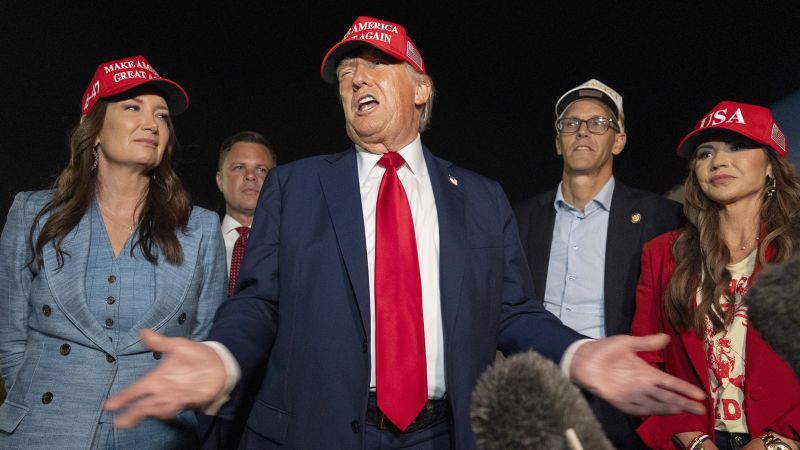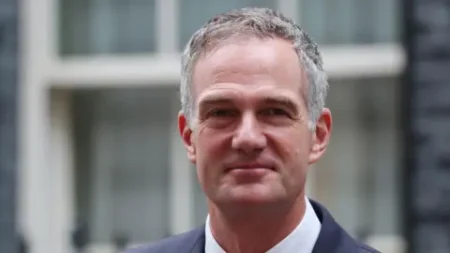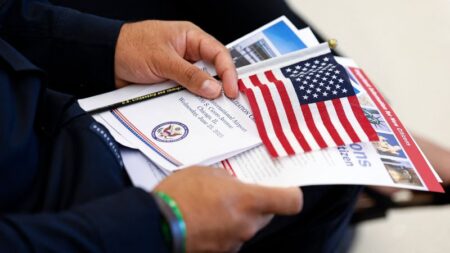In a recent controversy, President Donald Trump made headlines for using the term “Shylock” during a rally, drawing criticism for its perceived antisemitic implications. Speaking to reporters after landing in Washington, Trump expressed his surprise at the backlash, asserting that he had never heard of the term being offensive. “I’ve never heard it that way. To me, Shylock is somebody that’s a money lender at high rates,” Trump stated, emphasizing that his understanding of the term differs from that of those who found it problematic.
The context in which Trump used the word was during an event in Des Moines, Iowa, where he highlighted elements of a major domestic policy bill that had recently gained Congressional approval. He linked the term to the discussion of financial burdens that Americans face, saying, “Think of that: no death tax, no estate tax, no going to the banks and borrowings from in some cases a fine banker. And in some cases, Shylocks and bad people.” His remarks insinuated a differentiation between reputable lenders and those who exploit vulnerable families, yet the invocation of the term “Shylock” sparked immediate ire.
The name “Shylock” originates from William Shakespeare’s play “The Merchant of Venice,” where the character is portrayed as a stereotypical moneylender who demands a pound of flesh as collateral. This association with greed and exploitation has historically been used to promote negative stereotypes about Jewish people. Critics argue that using the term in contemporary discourse not only perpetuates harmful stereotypes but also reflects a broader issue of antisemitism in rhetoric.
Following the backlash, it is noteworthy that Trump is not the only public figure to have encountered criticism over the use of this term. In a similar situation, then-Vice President Joe Biden faced scrutiny back in 2014 when he used the word while recounting a personal story about veterans in need of assistance. The Anti-Defamation League had called for Biden to be more cautious with his language, and he later issued an apology, indicating an awareness of the term’s offensive nature. Biden’s comments were made in the context of discussing predatory lending practices, but the reaction highlighted the sensitivity surrounding the use of the term.
The current political landscape is rife with reactions to Trump’s remarks. Many Democrats quickly condemned the use of “Shylock,” asserting that it exemplified blatant antisemitism. New York Representative Daniel Goldman took to social media to express his outrage, stating, “This is blatant and vile antisemitism, and Trump knows exactly what he’s doing.” Such statements resonate with the ongoing struggle against antisemitic sentiments, which have seen a rise in recent years.
The CEO of the Jewish Council for Public Affairs, Amy Spitalnick, articulated her dismay over Trump’s usage of the term, calling it a clear reference to a harmful stereotype that has been continuously perpetuated. She remarked, “Shylock is among the most quintessential antisemitic stereotypes. This is not an accident.” Her assertion locates Trump’s comments within a broader narrative of normalization of antisemitic tropes in contemporary discourse. Spitalnick’s comments highlight the dangers associated with trivializing language that has historical weight against marginalized communities.
In summary, President Trump’s usage of “Shylock” at a recent rally not only ignited intense discussions surrounding its antisemitic connotations, but it also prompted reflections on the larger implications of language in political rhetoric. As public figures engage with historical references in their speeches, they carry the responsibility of understanding the impact of this language on diverse audiences. The separation between intent and interpretation highlights the complexities of communication in a highly charged political environment, where misunderstanding and misrepresentation can further exacerbate societal divides. As this conversation continues, it raises important questions about the responsibility of leaders to foster an inclusive narrative that respects the historical experiences of all communities.











